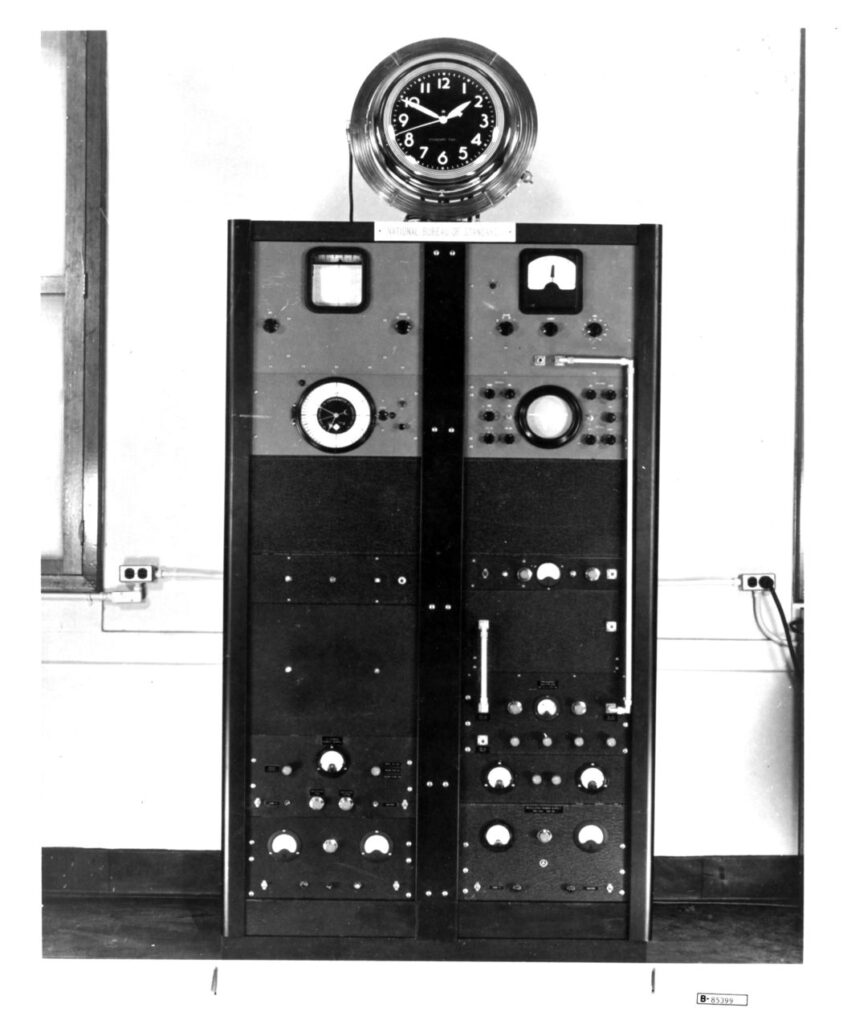Time?!
Is it real or just an imaginary measure we use? This question has intrigued philosophers, physicists, chemists, and even biologists for centuries. Today we will not dive that deep, instead, we’re going to explore the world of atomic clocks, considered one of the most accurate timekeeping devices in existence.

In 1948, a group of scientists led by Harold Lyons at the US National Bureau of Standards embarked on a groundbreaking project. They constructed the world’s first atomic clock, which was publicly unveiled in January 1949. This pioneering device utilized the stimulation of ammonia atoms to produce its time signal, a method that was later replaced by the use of caesium in subsequent models.
While this initial atomic clock validated the feasibility of the concept, it fell short in terms of accuracy when compared to the quartz-based electronic clocks of that era. As a result, it was decommissioned shortly after its initial trials.
The quest for precision didn’t end there. Fast forward to June 1955, Louis Essen and Jack Parry at the National Physical Laboratory in the UK introduced an atomic clock that marked a significant leap forward in timekeeping accuracy. This model employed caesium-133 to generate its time signal, setting a new standard for precision in atomic clocks.

An atomic clock is a type of clock that uses the vibrations of atoms to keep time. It’s like a regular clock, but instead of using a pendulum or a quartz crystal, it uses atoms. The most common type of atom used is caesium-133.
How Does It Work?
Here’s a simplified version of how an atomic clock works:
- Heat and Sort: Atoms are heated up and sorted into two groups based on their energy levels. We only keep one group for the next steps.
- Zap and Count: The atoms are zapped with microwaves, which makes some of them change their energy level. We then count how many atoms changed.
- Tune and Measure: We adjust the frequency of the microwaves to match the natural frequency of the atoms. Once we’ve done that, we can measure time very accurately.
After exactly 9,192,631,770 oscillations, a second has passed.
Why Are They So Accurate?
Atomic clocks are super accurate because they use the natural frequency of atoms, which doesn’t change. It’s like having a pendulum that never slows down or speeds up. Atomic clocks are marvels of precision. They’re so accurate that they only lose about one second every 100 million years. To put that into perspective, a typical quartz clock loses one second every few years. But the world of atomic clocks doesn’t stop there. There’s an even more accurate clock out there: Ye’s optical lattice clock. This incredible timepiece is so precise that it would only lose one second every 15 billion years! That’s longer than the age of the universe itself. Now that’s what I call keeping good time! It brought Jun Ye 2022 Breakthrough Prize in Fundamental Physics of 2022 shared by Hidetoshi Katori another scientist studying atomic clocks.

What Are They Used For?
Atomic clocks are used in many scientific disciplines and practical applications. They are installed at sites of time signal radio transmitters and used at some long-wave and medium-wave broadcasting stations to deliver a very precise carrier frequency. They also play a crucial role in satellite navigation systems.
Scientists are always looking for ways to make atomic clocks even more accurate. One idea is to use lasers to cool the atoms down, which makes them move slower and allows for more precise measurements. Another idea is to use different types of atoms that oscillate at higher frequencies.
So there you have it! Atomic clocks are one of the coolest (and most accurate) technologies we have for keeping time. Next time you check your watch or phone for the time, remember that it’s all thanks to the amazing science of atomic clocks!
Have a nice day?